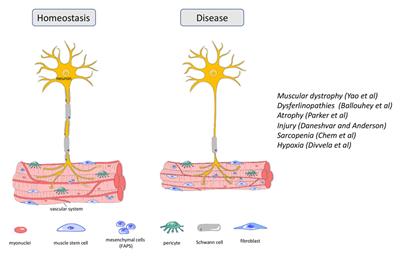EDITORIAL
Published on 12 Jan 2023
Editorial: Skeletal muscle—From developmental concepts to therapy

doi 10.3389/fcell.2022.1111561
- 905 views
10k
Total downloads
50k
Total views and downloads
EDITORIAL
Published on 12 Jan 2023

REVIEW
Published on 30 Aug 2022

ORIGINAL RESEARCH
Published on 16 Aug 2022

ORIGINAL RESEARCH
Published on 18 Jul 2022

ORIGINAL RESEARCH
Published on 03 Jan 2022

ORIGINAL RESEARCH
Published on 23 Nov 2021

REVIEW
Published on 19 Aug 2021
